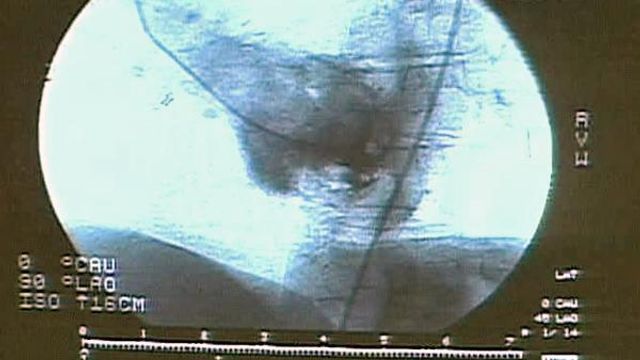Health Team
Improved Treatment, Follow-up Care Means Better Results for Heart Patients
Every year, millions of Americans suffer acute coronary syndrome, including heart attacks. A new study says because they’re receiving better treatment, fewer of those patients are dying during and after hospitalization.
Posted — UpdatedEvery year, millions of Americans suffer acute coronary syndrome, including heart attacks. A new study says because they’re receiving better treatment, fewer of those patients are dying during and after hospitalization.
Dr. Kim Eagle with the University of Michigan said most patients with acute coronary syndrome have similar symptoms.
“They develop a chest tightness or pain in the chest or in their back, sometimes in their arm or jaw,” Eagle said.
The pain is usually due to a blocked artery which prevents blood flow to the heart. To avoid permanent heart damage or death, the blocked artery needs to be opened quickly.
“We want to achieve that in less than 90 minutes, preferably even down to 60 minutes,” Eagle said.
Doctors use angioplasty clot-busting drugs to open the artery. A new study in the Journal of the American Medical Association looked at whether hospitals were using these treatments the way they should. They compared hospital death rates for 40,000 patients with acute coronary syndrome worldwide between 1999 and 2006.
“We saw a 50 percent reduction in hospital death for acute coronary artery syndromes,” Eagle said. “That is a magnificent change.”
Researchers also found death rates dropped for patients six months after hospital discharge. Eagle credited better inpatient care, the right medications and improved lifestyle and follow-up plans.
Those are what helped 80-year-old Glenn Watkins recover from an angioplasty nine years ago.
“He said I would be very disappointed if you don't live to age 90. I said, 'Well, that makes two of us,’” Watkins said.
Eagle said although heart care has improved, more patients will head to hospitals with heart problems if current obesity trends continue.
• Credits
Copyright 2024 by Capitol Broadcasting Company. All rights reserved. This material may not be published, broadcast, rewritten or redistributed.





